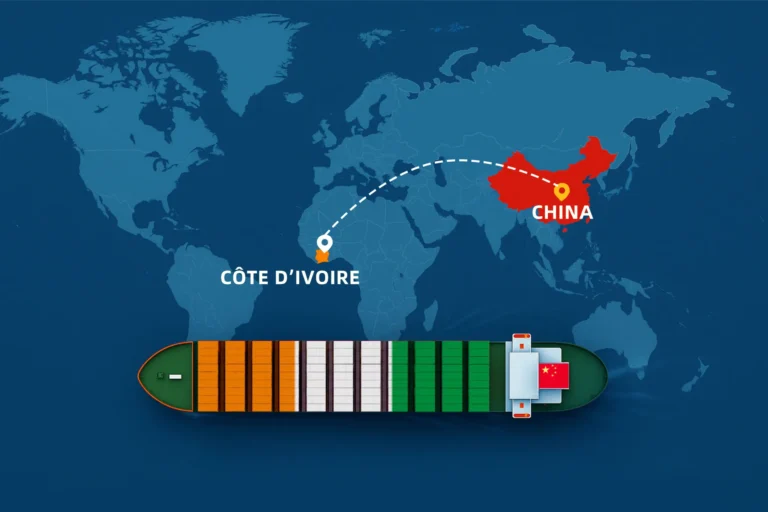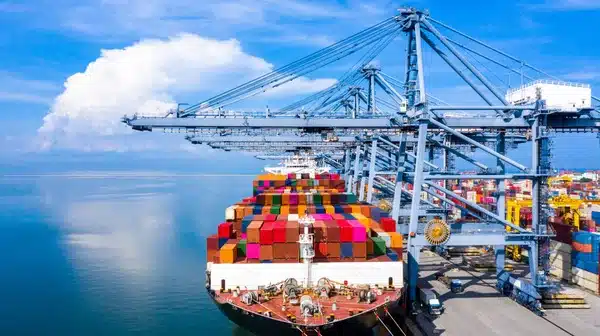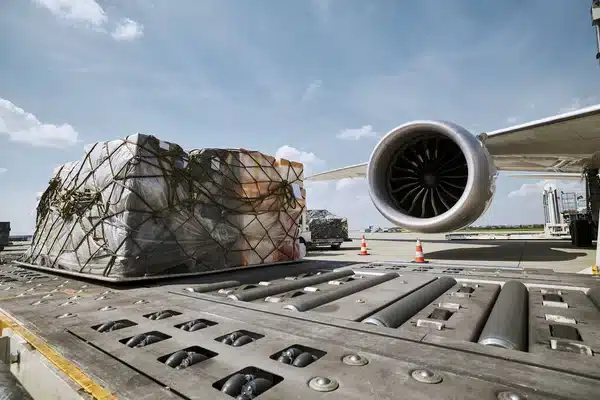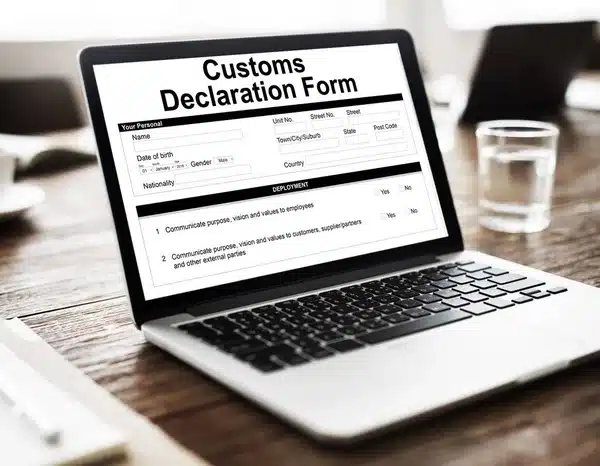Shipping from China to Côte d'Ivoire – Sea, Air & DDP in 2026
Fast, reliable shipping from China to Côte d’Ivoire for B2B importers,
industrial cargo, and general goods.
Compare sea freight, air freight, and DDP options with clear transit times,
costs, and customs handling — before you book.
Sea freight: 30–55 days
Air freight: 4–9 days
DDP: 18–35 days

- Experienced China-based logistics specialists
SHIPPING FROM CHINA TO CÔTE D'IVOIRE
Côte d’Ivoire, also known as Ivory Coast, officially the Republic of Côte d’Ivoire, is a key country on the southern coast of West Africa. Over the years, China has emerged as Côte d’Ivoire’s largest bilateral financing partner and third-largest trading partner. The collaboration between these two nations in infrastructure and public welfare projects has brought significant economic and social benefits.
If you are an importer in Côte d’Ivoire, this guide is designed to help you navigate the complexities of shipping from China. We will explore various transportation methods, transit times, and costs, providing you with the essential information you need to make informed decisions.
TAILORED SHIPPING SOLUTIONS FOR CÔTE D’IVOIRE
While many freight forwarders offer container and air freight services from China to Côte d’Ivoire, Tonlexing goes beyond the basics. We understand that each client has unique requirements, and we pride ourselves on delivering customized shipping solutions that meet those specific needs. Whether you are looking for sea freight, air freight, or a combination of both, we ensure your goods reach their destination efficiently and cost-effectively.
Working with a partner who comprehends your shipping needs and consistently provides optimal solutions is crucial. At Tonlexing, we are committed to delivering reliable, tailored logistics services that align with your business objectives.
Table of Contents
Shipping from China to Côte d'Ivoire: Comprehensive Guide for Sea Freight and Air Freight
Côte d’Ivoire, also known as Ivory Coast, is one of West Africa’s most important economic hubs, with a strong agricultural and industrial base. The country imports a wide variety of products from China, including machinery, electronics, textiles, construction materials, and consumer goods. Efficient logistics solutions play a crucial role in connecting China and Côte d’Ivoire, enabling businesses to access the products they need in a timely and cost-effective manner.
This guide provides a detailed overview of the shipping options available for transporting goods from China to Côte d’Ivoire, focusing on both sea freight and air freight. We will cover major ports, transit times, costs, and the shipping processes involved to help you make the right decision for your business.
Sea Freight from China to Côte d'Ivoire
Sea freight is a cost-effective and reliable method for transporting goods from China to Côte d’Ivoire, a major trade hub in West Africa. With increasing trade volumes between the two countries, China exports a wide range of products to Côte d’Ivoire, including machinery, electronics, construction materials, textiles, and consumer goods. The availability of multiple shipping routes and ports makes sea freight the preferred choice for large and bulky shipments.
China’s major ports, such as Shanghai, Ningbo, Shenzhen, and Guangzhou, provide frequent departures to Côte d’Ivoire’s key ports, including the Port of Abidjan, the largest and most important port in the country. The Port of Abidjan acts as a gateway not only for Côte d’Ivoire but also for neighboring landlocked countries like Burkina Faso and Mali, facilitating regional trade.
Sea freight offers flexibility with Full Container Load (FCL) and Less than Container Load (LCL) options, catering to businesses of all sizes. This guide provides detailed information on sea freight from China to Côte d’Ivoire, including transit times, costs, major ports, and the overall shipping process. Let us assist you in choosing the best solutions for your shipping needs!

Major Ports for Sea Freight from China to Côte d'Ivoire
Efficient sea freight between China and Côte d’Ivoire relies on well-connected ports in both countries. Below is a list of key departure ports in China and the main arrival port in Côte d’Ivoire:
Key Departure Ports in China
Shanghai Port
- The busiest port in the world, handling a wide variety of cargo, including electronics, machinery, and consumer goods.
- Known for its frequent sailings and extensive global network.
Ningbo Port
- Located in eastern China, this port is renowned for its high efficiency and cost-effective shipping options.
- A major hub for exporting textiles, furniture, and industrial goods.
Shenzhen Port
- A key gateway in southern China, specializing in high-tech products and consumer electronics.
- Offers competitive rates and reliable connections to Côte d’Ivoire.
Guangzhou Port
- One of China’s largest ports, ideal for mixed cargo shipments, including construction materials and household goods.
Qingdao Port
- Serving northern China, Qingdao is known for handling agricultural products, machinery, and bulk goods.
Key Arrival Port in Côte d'Ivoire
Port of Abidjan
- The largest and busiest port in Côte d’Ivoire, located on the Gulf of Guinea.
- Serves as a gateway for imports into Côte d’Ivoire and neighboring countries like Burkina Faso and Mali.
- Equipped to handle a wide variety of cargo, including containers, bulk goods, and specialized shipments.
How Long Does Sea Freight from China to Côte d'Ivoire Take?
The transit time for sea freight from China to Côte d’Ivoire depends on the departure and arrival ports, shipping routes, and whether there are transshipment stops along the way. Below are the estimated transit times:
| Departure Port in China | Arrival Port in Côte d’Ivoire | Estimated Transit Time |
|---|---|---|
| Shanghai Port | Port of Abidjan | 40-45 days |
| Ningbo Port | Port of Abidjan | 38-43 days |
| Shenzhen Port | Port of Abidjan | 36-41 days |
| Guangzhou Port | Port of Abidjan | 37-42 days |
| Qingdao Port | Port of Abidjan | 42-48 days |
Factors Affecting Transit Times
Direct vs. Indirect Routes
- Direct routes to the Port of Abidjan are faster. Transshipment via intermediate ports (e.g., Singapore, Durban, or Lomé) can add 5-10 days.
Port Congestion
- High cargo volumes at departure or arrival ports may lead to delays in loading and unloading.
Weather Conditions
- Adverse weather en route, especially near the Gulf of Guinea, may affect shipping schedules.
Customs Procedures
- Customs clearance delays in Côte d’Ivoire or China can extend transit times.
How Much Does Sea Freight from China to Côte d'Ivoire Cost?
Sea freight costs from China to Côte d’Ivoire depend on shipment size (FCL or LCL), container type, and departure/arrival ports. Below are estimated costs:
Full Container Load (FCL) Costs
| Departure Port in China | Arrival Port in Côte d’Ivoire | 20ft Container (USD) | 40ft Container (USD) |
|---|---|---|---|
| Shanghai Port | Port of Abidjan | $3,200 – $3,800 | $4,800 – $5,500 |
| Ningbo Port | Port of Abidjan | $3,100 – $3,700 | $4,700 – $5,400 |
| Shenzhen Port | Port of Abidjan | $2,900 – $3,500 | $4,500 – $5,200 |
| Guangzhou Port | Port of Abidjan | $2,800 – $3,400 | $4,300 – $5,000 |
| Qingdao Port | Port of Abidjan | $3,300 – $3,900 | $5,000 – $5,700 |
Less than Container Load (LCL) Costs
| Departure Port in China | Arrival Port in Côte d’Ivoire | LCL (Per CBM) (USD) |
|---|---|---|
| Shanghai Port | Port of Abidjan | $120 – $150 |
| Ningbo Port | Port of Abidjan | $115 – $145 |
| Shenzhen Port | Port of Abidjan | $110 – $140 |
| Guangzhou Port | Port of Abidjan | $105 – $135 |
| Qingdao Port | Port of Abidjan | $125 – $155 |
Additional Costs to Consider
Customs Clearance Fees
- Fees in Côte d’Ivoire typically range from $200 to $500, depending on the shipment type.
Port Handling Fees
- Charged at the Port of Abidjan, typically $100 to $300 per container.
Insurance
- Optional but recommended, costing 0.1% – 0.2% of the shipment’s value.
Documentation Fees
- For preparing and processing shipping documents, usually $50 to $150.
Sea Freight from China to Côte d'Ivoire: Shipping Process
1. Booking the Shipment
- Select a Freight Forwarder: Choose a reliable freight forwarder with experience in shipping from China to Côte d’Ivoire.
- Choose the Shipping Method: Decide between Full Container Load (FCL) or Less Than Container Load (LCL) based on your shipment’s size.
- Book the Shipment: After confirming the details, the freight forwarder will help with booking space on a vessel.
2. Preparing the Goods
- Packaging: Ensure your goods are properly packed to avoid damage during transit. Use suitable containers and materials.
- Labeling: Correctly label the goods, including all necessary product details and handling instructions.
3. Export Documentation
- Commercial Invoice: A detailed bill for the goods being shipped.
- Packing List: Describes the contents of each package.
- Bill of Lading (B/L): A document issued by the carrier confirming receipt of goods for shipment.
- Export Customs Declaration: Required for customs clearance in China.
- Certificate of Origin (if applicable): To certify the origin of the goods.
- Other Documents: Depending on the product, you may need additional certificates such as health, safety, or quality certifications.
4. Export Customs Clearance (China)
- Submit Documents: The necessary export documents are submitted to Chinese customs for clearance.
- Customs Inspection (if needed): The goods may be subject to inspection by Chinese customs.
- Export Approval: Once clearance is approved, the shipment is allowed to depart.
5. Ocean Transport
- Loading the Container: The goods are loaded into the container at the port of departure (e.g., Shanghai, Shenzhen).
- Shipping: The container is shipped via sea to the port of arrival in Côte d’Ivoire, typically the Port of Abidjan.
- Transit Time: The transit time for sea freight from China to Côte d’Ivoire is usually around 30-40 days, depending on the port of departure and shipping line.
6. Import Customs Clearance (Côte d’Ivoire)
- Arrival at Port: The shipment arrives at the Port of Abidjan.
- Customs Declaration: The importer or their customs agent submits the required documents to Ivorian customs.
- Customs Inspection: Customs may inspect the goods, and duties/taxes are calculated.
- Payment of Duties and Taxes: The necessary duties and taxes are paid to clear the goods.
7. Delivery to Destination
- Delivery to Warehouse or Final Destination: Once the goods are cleared, they are transported to the designated warehouse or final delivery address in Côte d’Ivoire.
- Unloading: The goods are unloaded from the container and delivered as per the agreed terms.
8. Final Documentation
- Delivery Confirmation: A delivery receipt or proof of delivery is signed by the consignee to confirm the successful delivery of goods.
Air Freight from China to Côte d'Ivoire
Air freight from China to Côte d’Ivoire offers a fast and efficient shipping solution for businesses that require quick delivery of goods across international borders. With China’s status as a global manufacturing hub and Côte d’Ivoire’s growing economy, air freight serves as a key logistics option for a wide range of industries, including electronics, machinery, pharmaceuticals, and consumer goods.
Whether you’re shipping small packages or larger, more complex cargo, air freight ensures high-speed delivery and reliability. This method is especially crucial for time-sensitive shipments that cannot afford delays, such as perishable goods or high-value items. In this section, we’ll explore the key aspects of air freight from China to Côte d’Ivoire, including transit times, costs, and considerations to help you make the most informed shipping decisions.

Major Airports for Air Freight from China to Côte d'Ivoire
When shipping goods via air freight from China to Côte d’Ivoire, it is essential to know the primary airports involved in both the origin and destination of the shipments. Here are the major airports used for air freight in both countries:
Major Airports in China
- Beijing Capital International Airport (PEK): One of China’s busiest airports, handling significant volumes of cargo, especially for international shipments.
- Shanghai Pudong International Airport (PVG): Known for its large cargo terminals, PVG is a key hub for goods traveling from China to the world.
- Guangzhou Baiyun International Airport (CAN): Serving as a crucial southern hub, Guangzhou’s airport is used for both domestic and international freight.
- Hong Kong International Airport (HKG): Although technically part of China, HKG is often used for international air freight due to its strategic location and advanced logistics infrastructure.
Major Airports in Côte d'Ivoire
- Félix-Houphouët-Boigny International Airport (ABJ): Located in the capital city of Abidjan, this is the primary airport for international freight entering Côte d’Ivoire. The airport has a modern cargo terminal catering to international air freight.
- San Pedro Airport (SPY): While less frequently used for large international shipments, this airport is essential for regional air travel and handling smaller cargo volumes.
Understanding the key airports will help streamline the logistics and ensure that your goods are handled efficiently both in China and upon arrival in Côte d’Ivoire. Whether you’re dealing with perishables, electronics, or general freight, selecting the right airport can optimize shipping times and costs.
How Long Does Air Freight from China to Côte d'Ivoire Take?
The transit time for air freight from China to Côte d’Ivoire is typically between 5 and 9 days, depending on the specific route, airline, and logistics services chosen. Below are estimated times based on major airports:
| Departure Airport in China | Arrival Airport in Côte d’Ivoire | Estimated Transit Time |
|---|---|---|
| Shanghai Pudong International (PVG) | Félix-Houphouët-Boigny International (ABJ) | 5-7 days |
| Guangzhou Baiyun International (CAN) | Félix-Houphouët-Boigny International (ABJ) | 6-8 days |
| Shenzhen Bao’an International (SZX) | Félix-Houphouët-Boigny International (ABJ) | 6-9 days |
| Beijing Capital International (PEK) | Félix-Houphouët-Boigny International (ABJ) | 7-9 days |
| Hong Kong International (HKG) | Félix-Houphouët-Boigny International (ABJ) | 5-7 days |
Factors Affecting Transit Times
Direct vs. Connecting Flights
- Direct flights are faster but may not always be available. Connecting flights through hubs (e.g., Dubai, Addis Ababa) can extend transit times by 1-3 days.
Customs Clearance
- Export and import customs processes in China and Côte d’Ivoire can add 1-2 days, especially if documentation or inspections are delayed.
Cargo Type
- Shipments requiring special handling, such as hazardous materials or perishable goods, may take longer to prepare and process.
Seasonal Demand
- During peak seasons (e.g., holidays, Chinese New Year), transit times may increase due to higher cargo volumes.
How Much Does Air Freight from China to Côte d'Ivoire Cost?
The cost of air freight from China to Côte d’Ivoire depends on several factors, including the weight, volume, and nature of the goods, as well as the departure and arrival airports. Below are estimated air freight costs:
| Departure Airport in China | Arrival Airport in Côte d’Ivoire | Cost (USD/kg) | Weight Range |
|---|---|---|---|
| Shanghai Pudong International (PVG) | Félix-Houphouët-Boigny International (ABJ) | $4.0 – $5.5 | 100 – 300 kg |
| Guangzhou Baiyun International (CAN) | Félix-Houphouët-Boigny International (ABJ) | $3.8 – $5.2 | 100 – 300 kg |
| Shenzhen Bao’an International (SZX) | Félix-Houphouët-Boigny International (ABJ) | $3.5 – $5.0 | 100 – 300 kg |
| Beijing Capital International (PEK) | Félix-Houphouët-Boigny International (ABJ) | $4.2 – $5.7 | 100 – 300 kg |
| Hong Kong International (HKG) | Félix-Houphouët-Boigny International (ABJ) | $3.3 – $4.8 | 100 – 300 kg |
Additional Costs to Consider
Customs Clearance Fees
- Typically ranges between $150 – $300, depending on the complexity of the shipment.
Fuel Surcharges
- Varies based on current fuel prices, often included in the per-kilogram rate.
Insurance
- Optional but recommended, costing 0.1% – 0.3% of the declared cargo value.
Documentation Fees
- Charges for preparing the Air Waybill (AWB) and other documents typically range from $20 – $50.
Air Freight from China to Côte d'Ivoire: Step-by-Step Process
1. Inquiry and Booking
- Contact a Freight Forwarder: Discuss shipment details, including type of goods, weight, dimensions, and destination.
- Choose Service Type: Select between economy and express air freight based on urgency and budget.
- Confirm Booking: Reserve space with an airline and obtain an Air Waybill (AWB) number for shipment tracking.
2. Cargo Preparation
- Packaging: Ensure goods are securely packed using air cargo-compliant materials. Fragile or hazardous goods may require additional precautions.
- Labeling: Clearly label each package with consignee details, handling instructions, and required shipping information.
3. Documentation Preparation
Prepare and submit the necessary shipping documents, including:
- Commercial Invoice: Details the goods, their value, and the buyer/seller information.
- Packing List: Lists the contents, dimensions, and weight of each package.
- Air Waybill (AWB): Serves as the contract for air freight and proof of shipment.
- Certificate of Origin: Certifies the origin of the goods (if required by Côte d’Ivoire customs).
- Special Permits: Required for hazardous or regulated goods.
4. Export Customs Clearance in China
- Submit Documentation: Provide the necessary documents to Chinese customs authorities.
- Customs Inspection: Cargo may undergo inspection to verify compliance with export regulations.
- Export Approval: Once cleared, the goods are released for loading onto the aircraft.
5. Air Transport
- Loading: Goods are loaded onto the aircraft at the departure airport (e.g., Shanghai Pudong, Guangzhou Baiyun).
- Transit Time: Flights typically take 5-9 days to Côte d’Ivoire, depending on routing and customs processing.
6. Import Customs Clearance in Côte d’Ivoire
- Document Submission: Provide required documents to customs officials at Félix-Houphouët-Boigny International Airport (ABJ).
- Customs Inspection: Goods may be inspected to ensure compliance with import regulations.
- Duties and Taxes: Pay applicable import duties, VAT, and other fees based on the CIF value of the shipment.
- Release of Goods: Once cleared, the shipment is released for final delivery.
7. Final Delivery
- Local Transportation: Arrange delivery to the consignee’s location in Côte d’Ivoire via truck or other modes of transport.
- Delivery Confirmation: Confirm receipt of goods with the consignee and ensure all documentation is finalized.
Customs Clearance and Duties for Shipping from China to Côte d'Ivoire
Navigating customs clearance and understanding import duties are critical steps when shipping goods from China to Côte d’Ivoire. As one of West Africa’s fastest-growing economies, Côte d’Ivoire imports a wide variety of goods, ranging from machinery and electronics to textiles and consumer products. Ensuring smooth customs clearance not only saves time and money but also helps businesses establish reliable supply chains in the region.
The customs clearance process involves submitting accurate documentation, adhering to Côte d’Ivoire’s import regulations, and paying applicable duties and taxes. Customs duties and VAT are calculated based on the CIF (Cost, Insurance, and Freight) value of the shipment, emphasizing the importance of detailed and accurate valuation. Importers must also comply with additional requirements such as obtaining permits for regulated goods or certificates for specific product categories.
Working with experienced customs brokers or logistics partners can streamline the process, ensuring timely clearance and minimizing risks of delays or penalties. This guide provides a comprehensive breakdown of the customs clearance process, key documentation, and duties applicable when shipping goods from China to Côte d’Ivoire. With the right preparation and support, your shipments can move efficiently through the customs process, reaching their destination on time and within budget.

Customs Clearance Process
Documentation Submission The following documents are required for customs clearance:
- Commercial Invoice: Details the value, quantity, and description of the goods.
- Packing List: Specifies the dimensions, weight, and contents of the shipment.
- Bill of Lading (B/L) or Air Waybill (AWB): Proof of shipment.
- Certificate of Origin: Confirms the origin of the goods, often required for duty calculation.
- Import License/Permit: Necessary for regulated items like pharmaceuticals or electronics.
- Special Certificates: For specific goods, such as a phytosanitary certificate for agricultural items.
Customs Inspection
- Customs officials may inspect the shipment to verify compliance with Côte d’Ivoire’s regulations.
- Goods are checked for accuracy in declared values, descriptions, and adherence to import laws.
Duties and Taxes Assessment
- Duties and taxes are calculated based on the CIF value (Cost, Insurance, and Freight) of the goods.
Payment of Duties and Taxes
- Importers or their customs brokers must pay the assessed duties and taxes before the goods are cleared for release.
Release of Goods
- After successful clearance, the shipment is released from the customs warehouse for delivery to the final destination.
Duties and Taxes
Customs Duties
- Customs duties vary depending on the product classification (HS code) and typically range between 5% and 20% of the CIF value.
Value-Added Tax (VAT)
- A standard VAT rate of 18% is applied to most imported goods, calculated on the CIF value plus customs duties.
Additional Charges
- Inspection Fees: For physical or scanner inspections.
- Processing Fees: For customs documentation and administrative costs.
- Storage Fees: If the shipment remains in a customs warehouse beyond the allowed free time.
Exemptions and Reductions
- Goods imported under specific trade agreements or international aid programs may qualify for reduced duties or exemptions.
- Proper documentation is required to claim such benefits.
Tips for Smooth Customs Clearance
Accurate Documentation
- Ensure all documents are complete, accurate, and comply with local regulations.
Work with a Customs Broker
- Experienced brokers can expedite the process and handle complex regulations.
Classify Goods Correctly
- Use the appropriate HS code to avoid misclassification penalties.
Budget for Duties and Taxes
- Factor in customs duties and VAT in your overall shipping costs.
Pre-Clearance Consultation
- Discuss potential issues or requirements with a customs expert before shipment.
Why Choose Tonlexing for Your Shipping Needs from China to Côte d'Ivoire?
At Tonlexing, we specialize in providing seamless and reliable shipping solutions tailored to your business needs. With years of experience in global logistics, we ensure your goods reach Côte d’Ivoire on time and in perfect condition. Here’s why we are the trusted choice for businesses worldwide:
- Comprehensive Services: Whether you require sea freight, air freight, or door-to-door delivery, we have a solution for every need.
- Customs Expertise: Our team navigates the complexities of customs clearance, ensuring compliance and minimizing delays.
- Competitive Pricing: We offer cost-effective shipping options without compromising on quality or reliability.
- Advanced Tracking: Monitor your shipment every step of the way with our real-time tracking system.
- Dedicated Support: Our experienced professionals are available to assist you throughout the shipping process.
From the moment your goods leave China to their final delivery in Côte d’Ivoire, Tonlexing is here to provide a hassle-free experience. Contact us today for a personalized quote and let us handle your logistics with expertise and care!
Frequently Asked Questions (FAQs) About Shipping from China to Côte d'Ivoire
- Sea Freight: Transit times range from 30 to 45 days, depending on the departure port in China.
- Air Freight: Typically takes 5 to 9 days, depending on flight routes and customs processing.
- Door-to-Door Shipping: Delivery time varies based on the chosen shipping method.
- Sea Freight: Best for large, heavy shipments or bulk cargo, with a transit time of 30-45 days.
- Air Freight: Ideal for urgent or high-value goods, typically taking 5-9 days.
- Door-to-Door Services: Combines freight and local delivery for a hassle-free solution.
Yes, but you must comply with international regulations and obtain any necessary permits. Hazardous goods require specific documentation and labeling.
- Consolidate Shipments: Combine smaller shipments to maximize container space.
- Plan Ahead: Book early to avoid peak-season surcharges.
- Choose LCL for Smaller Loads: Less than Container Load (LCL) is cost-effective for smaller shipments.
- We offer comprehensive logistics solutions, including sea freight, air freight, and door-to-door services.
- Our customs clearance expertise ensures smooth and timely delivery.
- Competitive rates, advanced tracking, and dedicated support make us your trusted partner for international shipping.

